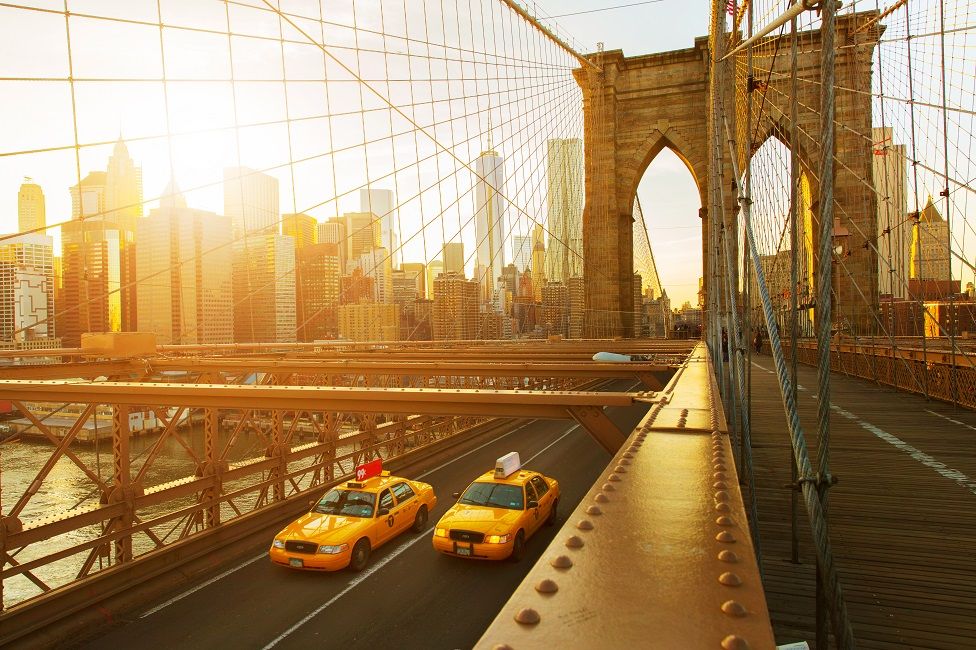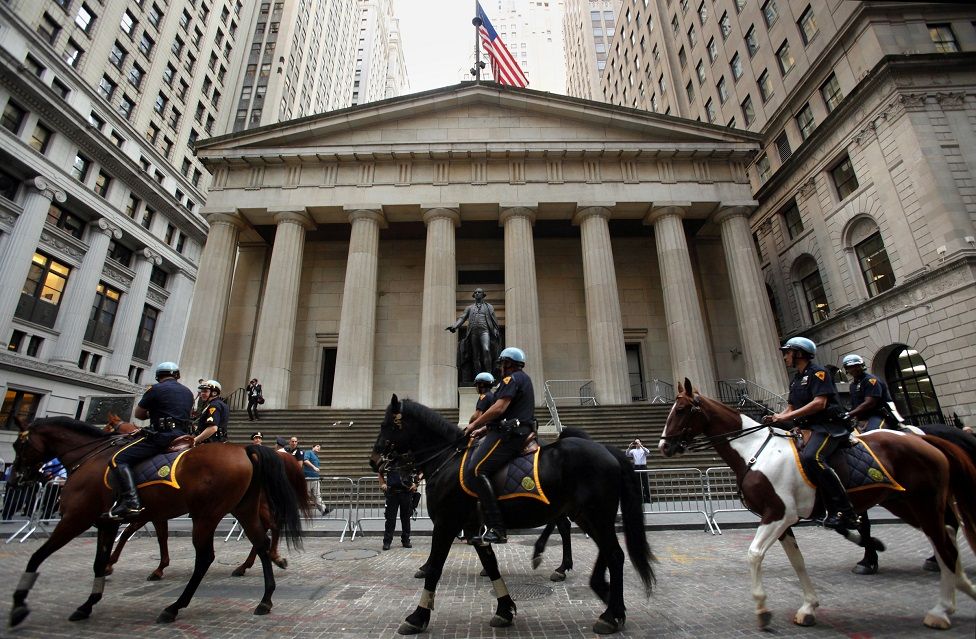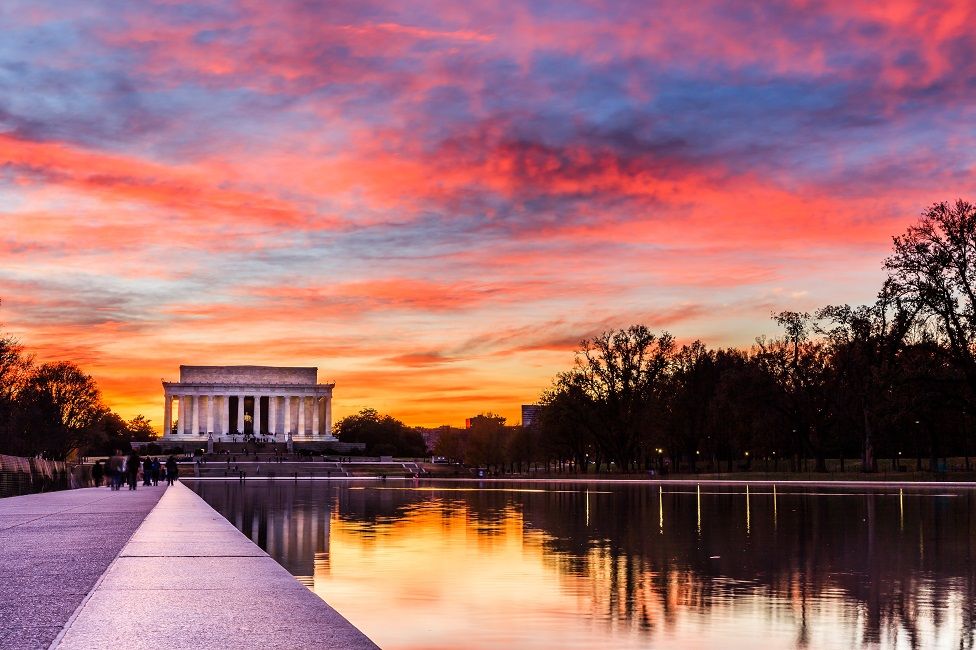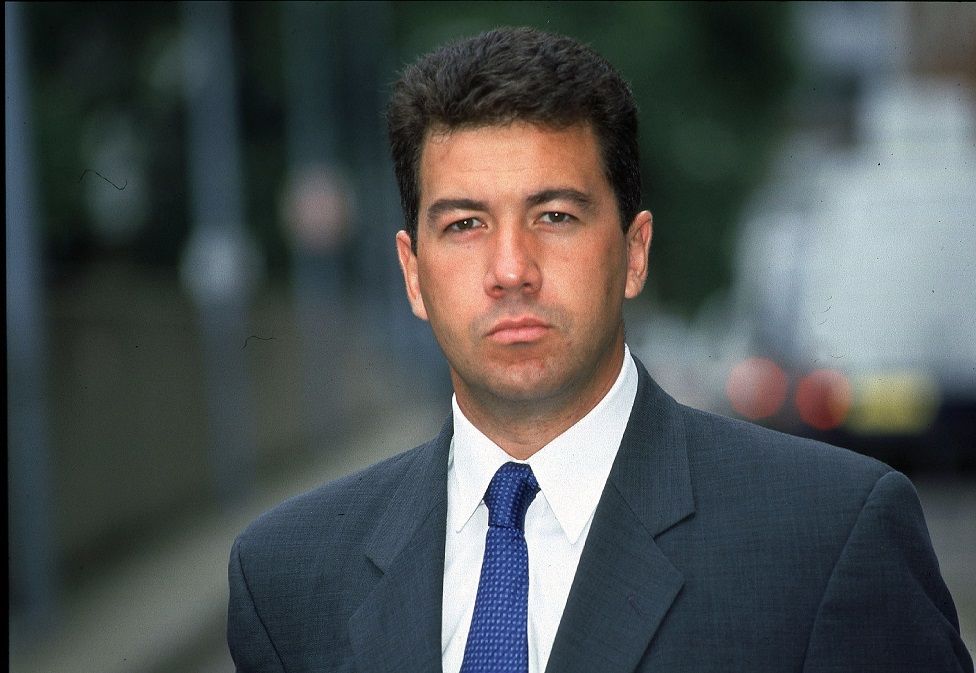
My New York commute takes less than 25 minutes, but skirts the broad outlines of almost 250 years of American history.
I take the ferry that crosses the mouth of the East River, the churning waters through which George Washington once evacuated some 9,000 troops right under the noses of the British redcoats - an escape that proved pivotal to the outcome of the Revolutionary War.
On the port side, I can peer across to the Statue of Liberty, that beacon of hope for millions of new immigrants. On the starboard side are the skyscrapers of Manhattan, those emblems of New World ambition. Towering above me is the Brooklyn Bridge, a feat of engineering from the late 19th Century that was the moonshot of its day.
From the ferry terminal in Lower Manhattan, I walk up Wall Street, passing Federal Hall, the site where Washington was inaugurated as America's first president. Directly across from the general's bronze statue is the New York Stock Exchange, where the market crashes of 1929 and 2008 posed such a threat to the US capitalist system.
At the top of Wall Street is the cemetery of Trinity Church, where one of the most storied founding fathers, Alexander Hamilton, is interred. Then I turn right on to Broadway, with the gothic turrets of what was once the world's tallest tower, the Woolworth Building, in front of me, and the Art Deco halo of the Chrysler Building shimmering in the far distance.
A left takes me into Zuccotti Park, which after the Great Recession became the tent-strewn home of the Occupy Wall Street movement. Then I walk the final short stretch to the edge of what, in pre-pandemic times, was a busy but quiet plaza scattered with people talking in hushed tones. There, two square sunken reflecting pools mark the footprints of the Twin Towers - memorials of modern America's most awful day.

Not every American has so much history on their doorstep. But it surrounds them nonetheless. Permeating their lives. Colouring their politics. Determining their relationship to the here and now.
When the pro-Trump mob stormed the US Capitol on January 6th, some of its members chanted "1776", believing they were acting in the same insurrectionary spirit as the revolutionaries who overwhelmed the British.
The gun lobby here continually invokes the Second Amendment, even though it was only in 2008 that the Supreme Court affirmed the constitutional right to bear arms.
Nostalgic nationalism explained much of the appeal of Donald Trump's ringing slogan Make America Great Again, even though he rarely specified what halcyon era he was harking back to. That partly explained its genius: voters were left to conjure up American dreamscapes in the minds.
One of Trump's final acts as president was to release the 1776 Report, which sought to overturn what the presidential commission behind it called "the radicalised view of American history". It was a rejoinder to the 1619 Project from the New York Times, a series of articles and talks which emphasised the African-American experience and endurance of white supremacy in the American story. 1619, of course, was the year when 20 enslaved Africans first arrived on these shores.
The Black Lives Matter campaign has its roots in that story, and also segregation and the unfinished business of the civil rights era. Many statues memorialising the Confederacy have now been toppled and torn down. Younger Democrats especially are driven by a galvanising idea, that historical wrongs need urgently to be righted, especially when it comes to race.

Thus, in modern-day America, there is no such thing as a bygone era. The battlefields of yesteryear are also combat zones of today. The political geography of America is increasingly being shaped by a politicised historiography. The past is viewed through a partisan prism.
Polling conducted by the American Historical Association has shown, for instance, that Democrats believe that people of colour and women do not receive sufficient attention.
Republicans think that the military, religious groups and the Founding Fathers have been neglected. And at the root of these conflicting views lies a fundamental divide. Republicans overwhelmingly believe that American history should be celebrated, while Democrats think that history has to be reckoned with and atoned for.
Conservatives accuse liberals of promoting what they call a woke interpretation, heavy on self-flagellation and light on self-congratulation. Liberals often dismiss conservative takes as chest-thumping cartoons or out-dated movies, like Gone with the Wind.
Rather than agreeing on a collective national story, the trend has been towards separate narratives. Black History Month. LGBT History Month. Italian-American History Month. Native-American Heritage Month. History has become hyphenated. But it's also more complete. And it's no longer written solely by the winners. Marginalised voices are telling stories that need to be heard.
In a country where the national conversation has become so binary and simplistic, complex narratives have also become harder to convey. But it's the very contradictions of the American story that help us make more sense of it.

Read more from Nick

The hand that penned the Declaration of Independence, with its bold statement that all men are created equal, also authored a scientific defence of white supremacy. Abraham Lincoln called for the emancipation of slaves but did not believe in racial equality. The military that helped defeat fascism during World War II was segregated by race. A nation that likes to think of itself as being a city on a hill has often adopted a bunker mentality.
But even if this history doesn't lend itself to easy celebration, does that mean it should be cancelled or erased? A San Francisco education board recently voted to rename 44 schools, including those honouring George Washington and Abraham Lincoln. A committee advising the mayor of the District of Columbia recommended the renaming of dozens of parks, buildings and schools, stripping them of the names of seven presidents, including Thomas Jefferson and even Washington himself.
One of the driving ideas on the left right now is presentism: the notion that figures from the past can legitimately be judged by contemporary mores and values. So the Founding Fathers are cast less as architects of the new Republic, and more as slaveholders and white oppressors.
One of the more cerebral ideas on the right, by contrast, is originalism: the belief that you can only make sense of America's foundational document if you understand the intentions of its authors at the time it was adopted. Its essentially saying 18th Century history should be our modern-day guide.
The contextualisation of memorials offers something of a middle ground, but it's hard to reach any contextual consensus. Should the Lincoln Memorial come with a spoiler alert? Should schoolchildren be taught to question the very name of the nation's capital?

US history is so fiercely contested because so much of it is unresolved. Issues that divided the Founding Fathers are still up for debate. How far should the federal government encroach into the everyday lives of Americans? How should power be divided between the three branches of government? Should small states have the same number of senators as the most populous? Should residents of Washington DC have representation as well as taxation?
As for historical events that tend to bind the country together, they are often founded on feel-good myths. Thanksgiving is a case in point. The story of the Pilgrims happily breaking bread with Native Americans soon after crossing the Atlantic has promoted the perception that indigenous people gladly welcomed European outsiders to these shores. It ignores the murderous brutality of white settlement and the invasion of native land.
Historical amnesia is yet another problem: the banishment of inconvenient memories. The internment of Asian Americans at the start of World War Two is often swept under the carpet, partly because it's a blot on the record of Franklin Delano Roosevelt, a liberal icon. The Tulsa massacre has often been ignored. For many supporters of Donald Trump, it's as if January 6th, the storming of the US Capitol, never happened.
And then there's fake history - the deliberately fictitious and fraudulent narratives intended to mould an alternative reality. A majority of Republicans, for example, still tell pollsters they believe that Joe Biden somehow stole the presidential election, even though clearly he did not.

When I came to United States as a wide-eyed teenager in the mid-1980s, one of the things that seduced me about America was its preoccupation with the future. Almost four decades on, I'm struck by how it remains captive to its past.
Rather than being cyclic, history feels depressingly looping. We keep on revisiting the same arguments. We keep on going over the same ground.
"We cannot escape our history." The words of Abraham Lincoln seem even more redolent now than they did at the time of the Civil War. Competing versions of the American past have created antagonistic versions of the American present. It helps explain why the nation so often feels like it is in a state of cold civil war, and why I feel that I have been reporting for so many years on two Americas.
I should end by saying that I won't be making my daily commute anymore. Not because of Covid. Thankfully, the city is opening up. Rather it's because I'll soon be leaving New York, and also the BBC.
For more than a quarter of a century, I've occupied a seat in the stalls of history. Thank you for letting me share with you so much of what I've seen.
.
"captivity" - Google News
June 18, 2021 at 05:47AM
https://ift.tt/3xs1iIg
Once the future, US now captive to its past - BBC News
"captivity" - Google News
https://ift.tt/3b01anN
https://ift.tt/3dbExxU
Bagikan Berita Ini














0 Response to "Once the future, US now captive to its past - BBC News"
Post a Comment